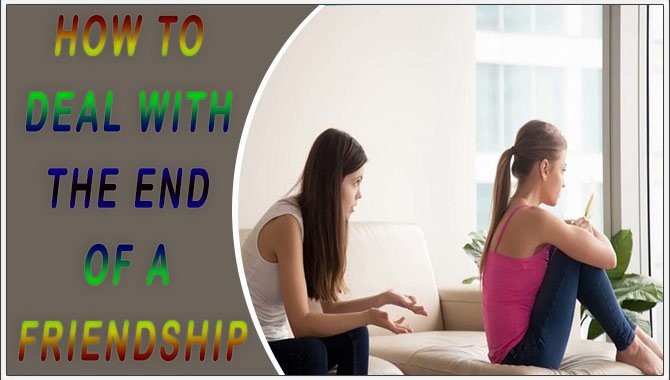Obsessing is something that many people do daily. It can be intrusive and repetitive thoughts that take your time and energy. Friendship is a very important part of our lives. It can help us cope with difficult times, make us feel happier and more content, and even improve our health. There are many types of friendships, but the most important thing is that they are reciprocal: friendship requires both give and take. Friends are the people who make life bearable. When they’re gone, we feel lost and lonely.
But fret not. There are ways to stop obsessing over a lost friendship and rebuild your relationships as soon as possible. We’ll be discussing the concept of obsessions and how to overcome them. We’ll also provide you with 7 easy tips to stop obsessing over a lost friendship and rebuild your relationships. So put down the bottle, close the book, and join us in healing the broken bonds of love.
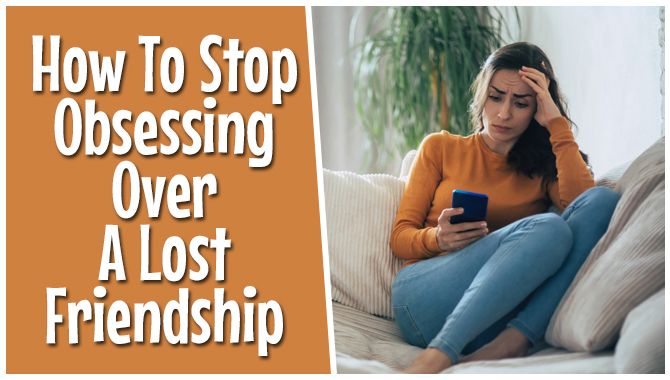
What Is An Obsession?

An obsession is a strong and persistent interest in something that is not healthy or helpful. It can take many forms, but the common thread is that it’s causing significant distress. When it comes to losing a friendship, an obsession can define as the intense focus on the past and present events between yourself and your friend. It can become so consuming that it takes up all your time, energy, and thoughts. This can lead to feelings of sadness, loneliness, and even guilt.
7 Easy Tips To Stop Obsessing Over A Lost Friendship

Obsessing your friendships can hurt your relationships. It can prevent you from enjoying the relationships as they are and can lead to tension and conflict. There are several reasons why obsessing over friendships can be harmful. For one, it can make it difficult for you to trust your friends. Moving on from a loss can be hard, especially if your friendship is important to you. Here are 7 Easy tips to stop obsessing over a lost friendship.
1.Take Some Time For Yourself.
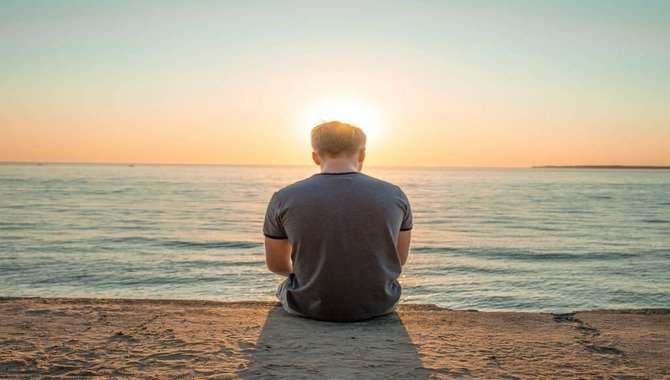
It can be tough to remember that sometimes friendships end, and that’s okay. It’s important to remember that you’re not responsible for the relationship, and you don’t have to keep apologizing or thinking about the other person all the time. Sometimes it can be helpful to take some time for yourself. This could mean spending time away from the person who broke your friendship, doing something you enjoy, or just relaxing. Remember that plenty of other people in the world want to be friends with you.
If you obsess over the lost friendship, try focusing on something else instead of dwelling on what happened. For example, think about how you spend your weekend or what new things you will learn this year. Doing this will help take your mind off what’s gone and focus on what’s still ahead.
2.Talk About What Happened.
If you’re struggling to move on from a lost friendship, the first step is to talk about what happened. This can be not easy, but healing and moving on are important. Start by acknowledging that you’re upset and feel angry about what happened. It’s okay to be emotional, and you don’t have to be perfect in your conversations with your friend. Just try to be honest and open about your feelings without judging them. Next, try to focus on the past sparingly.
Thinking about or dwelling on the hurtful things that happened will only make it harder for you to headnote: Don’t forget why you decided to end the friendship in the first place – it may have been because something your friend did was unacceptable or offensive. It’s important not to let those memories take over.
3.Don’t Wallow In Your Sadness.
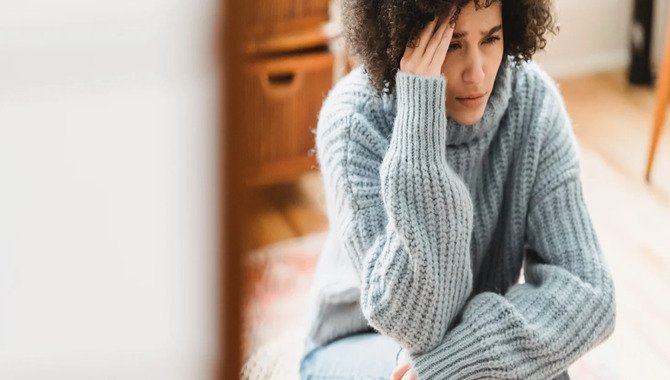
It can be tough to deal with the pain of a lost friendship, but it’s important not to wallow in your sadness. Doing so will only make things worse. Instead, try to take some time for yourself and focus on healing. This may involve talking to friends and family about your feelings, writing down your thoughts and experiences, or even doing something you enjoy that brings you happiness.
It’s also important to remind yourself that not every friendship is worth sacrificing and that there are plenty of other good people you could connect with. In the end, it’s important to remember that losing a friendship is a difficult experience – but it can be overcome if you take the right steps toward healing.
4.Be Honest With Yourself.

Friendship is over, no matter how bad it may seem at the time. However, being honest with yourself is the best way to stop obsessing over it and move on. Start by acknowledging what happened and why things went wrong. This will help you understand why you’re feeling so hurt and upset and ultimately make it easier to let go of the friendship.
Next, try to remember all the good times you had together. Remember everything that made your friendship enjoyable – even if those memories are painful. Finally, remind yourself that your friends are probably doing the same thing right now – they’re grieving and trying to come to terms with what’s happened.
By being honest with yourself, you can finally start moving on from your lost friends and living more positively.
5.Move On Physically And Emotionally.

It can be really hard to let go of a friendship that’s been lost. We may feel incomplete without them, or like they were our only friends. Physical things can help us move on. For example, we can try activities we used to do together or swap photos and stories of our time together. Emotionally, it can be helpful to talk about our feelings with someone else.
Talking about our experiences openly can help us process them in a less painful and easier to accept. Both physical and emotional healing takes time, but eventually, it’s important to accept that the friendship is over and move on. It’s also important to remind ourselves that plenty of other friends out there would love to have ours.
6.Let Go Of What’s Causing Your Obsession In The First Place.
When it comes to lost friendships, most of us feel a mix of sadness, loneliness, and even guilt. But the key to preventing these feelings from becoming obsessions is learning to let go. The first step is to acknowledge that you’re feeling these emotions and that they’re normal. This doesn’t mean you have to act on those feelings; it’s better if you don’t. Instead, admit them to yourself and start accepting the situation’s reality. Once you’ve acknowledged what’s happening, start thinking about what you can do to move on.
- Here are some tips for moving on:
- Talk about your loss with someone who will understand.
- Write down your thoughts and feelings in detail so you can revisit them later when you feel more relaxed.
- Take some time for yourself each day
- whether lying in bed reading or spending time outdoors doing something you love. This will help ease the pain and help your mind focus on something other than your loss.
7.Seek Professional Help
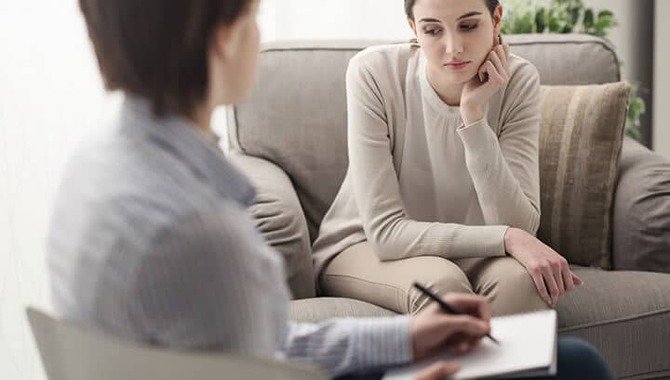
If you’re struggling to cope with the breakup of your friendship, there’s no shame in seeking professional help. Several mental health services available can help you get back on track. Some of the most common issues that people struggle with after a breakup include feeling lonely and isolated, experiencing depression or anxiety, and having trouble concentrating or sleeping. If you experience any of these symptoms, it may be helpful to seek out counseling or therapy. These services can give you the support you need to start moving on from your friendship and rebuild your life.
Several support groups are also available specifically designed for people who have lost friends or loved ones due to death, divorce, or other traumatic experiences. This can be an incredibly supportive environment to explore your feelings and begin rebuilding your life.
Why Do We Obsess Over Lost Friendships?
There are a few reasons why we might obsess over lost friendships. First, we might feel like losing something that was once important to us. We may struggle to cope with the idea that our friendship has changed and isn’t the same as it used to be. This can make us upset and frustrated, and we may find it hard to move on.
Second, we may fear our lost friends will reflect badly on us. We may worry that our friends will judge or think less of us because we cannot cope properly with the situation. We might even become obsessive about trying to win back our friend’s love and approval.
Third, we may believe our lost friendship is a sign of our weakness. We might feel like we need to be better or able to maintain strong relationships. For us to feel better, we may blame ourselves for things that went wrong in our relationship.
How To Rebuild A Lost Friendship

A friendship can be a valuable thing. It can bring us comfort and joy and help us connect with others. However, sometimes friendships fall apart. It’s important to be understanding and forgiving when this happens.
Try not to take things personally and remember the good times you had together. Offer your friend support in rebuilding their friendship – this can be as simple as listening and showing interest. Take your time – a lost friendship can quickly become forgotten if left untreated.
Ways To Reduce Our Obsession Over Lost Friendships

There’s no doubt that losing a friendship can be emotionally difficult. It can be so difficult that it can lead to obsessive thoughts and behavior. When we obsess over a lost friendship, we think about and focus on the relationship negatively. We may become obsessed with wondering why the friendship ended, what could have been different, or what we could have done to prevent it from ending.
We may also feel angry, resentful, or humiliated by the situation. One of the best ways to reduce our obsession over lost friendships is to address the underlying issues that led to their demise in the first place. This means identifying and resolving any anger, resentment, or humiliation we may have had towards our friend. Once we’ve done that, it will be much easier to move on and accept the loss without feeling too devastated or overwhelmed.
Conclusion
Friendship is an incredibly important part of life. It can make all the difference in how you feel mentally and emotionally. It can also provide comfort and support when you need it most. There are countless benefits to having healthy friendships – from increasing your resilience and happiness to improving your cognitive skills and social networking abilities.
Research has shown that friends make us healthier, happier, and more productive. Obsessions are intrusive, repetitive thoughts or images that come up repeatedly in your mind. They can be anything from thoughts about death or violence to sexual fantasies. Many of us have experienced the loss of a friendship at some point in our lives.
Whether it’s a close friend from childhood or a more recent friend, the pain of the loss is felt deeply. However, fret not. With the help of these easy tips, you can start to rebuild your friendship and put the past behind you. Remember, focusing on the present and recovering from the lost friendship healthily is important. So, You may find that you can stop obsessing over a lost friendship.
Frequently Asked Questions
1.Can Losing A Friendship Be Traumatic?
Ans: Yes, losing a friendship can be traumatic. It is understandable to feel sadness and disappointment over losing a friend, even if you weren’t close to them. However, taking steps to help you move on from the loss can help you heal in the long run.
2.Why Does Losing A Friendship Hurt So Much?
Ans: Losing a friendship is a very emotional experience because it means losing the connection we had with someone. We may feel like we were close to them, and it can be quite devastating when they die or disappear from our lives.
3.What Is The Best Way To Move On After A Lost Friendship?
Ans: Responding positively to the loss of a friend – by focusing on the good times and celebrating the friendship while it was still alive – can help your healing process. Additionally, seeking professional counseling or therapy may be beneficial in helping you work through your feelings surrounding the loss.
4.What Should I Do To Stop Obsessing Over A Lost Friendship?
Ans: The best way to stop obsessing over a lost friendship is to identify the underlying issues that led to its demise. This means resolving any anger, resentment, or humiliation we may have had towards our friend. Once we’ve done that, it will be much easier to move on and accept the loss without feeling too devastated or overwhelmed.
5.Why Is It Important For Me To Learn How To Stop Obsessing Over A Lost Friendship?
Ans: Losing a friend can be a truly painful experience, and obsessing over the loss can lead to additional emotional pain. By learning to stop obsessing over a lost friendship, we can begin the healing process and move on from this difficult time.

